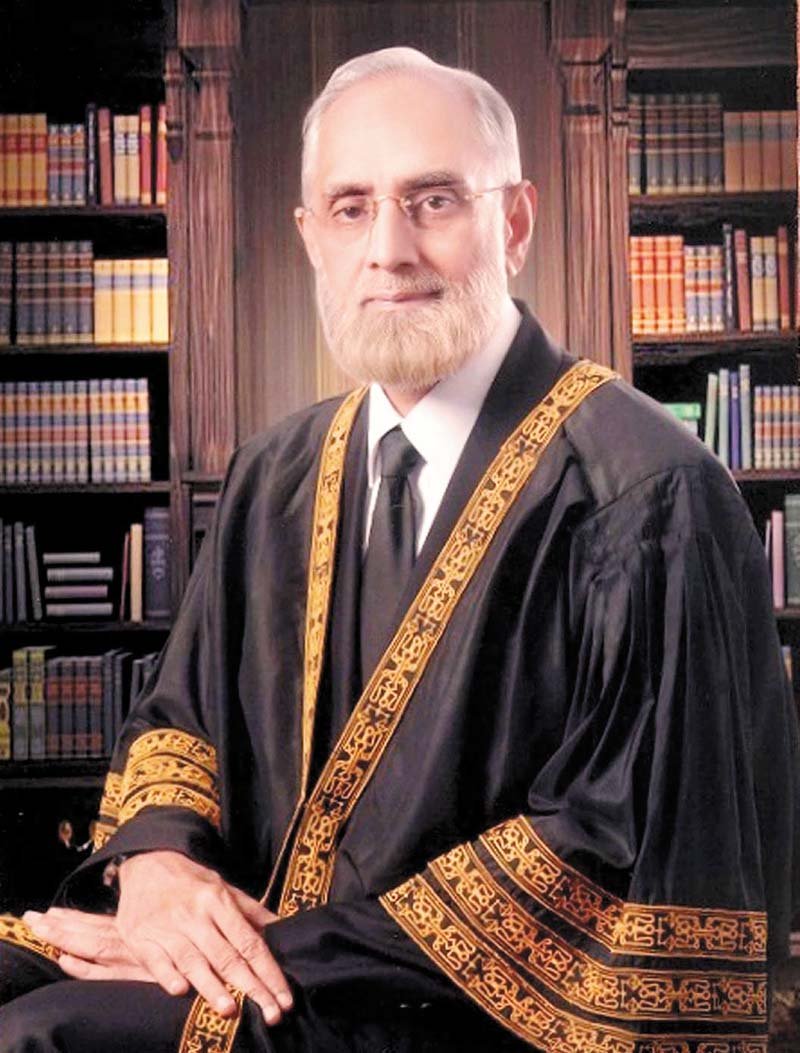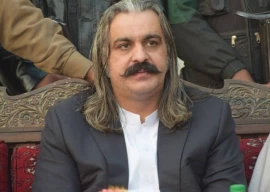
Though uniquely placed to make history and pass landmark rulings during his tenure, Justice Jamali chose instead the middle ground or at least that is what his detractors say. Jamali took 20 suo motu notices, most of which were related to the poor state affairs in his home province Sindh.
The apex court entertained only 39 constitutional petitions under Article 184 (3). Most of the suo motu cases, as well as constitutional petitions, taken up during his time are still sub judice.
In his inaugural speech, Justice Jamali had vowed that the Supreme Judicial Council (SJC) would be activated and during his time a number of cases were shortlisted against superior court judges.
However, the proceedings could not be concluded and Justice Jamali, as the SJC chairman, was unable to try any superior court judge under Article 209 of the Constitution.

The CJ also dismissed in his chamber a constitutional petition, seeking disclosure of the number of references pending against judges before the SJC – a move that prompted the legal community to wonder why he was unable to fulfill the agenda of accountability of the superior judiciary.
Ali Zafar, who served as president of the Supreme Court Bar (SCBA) during Justice Jamali’s tenure, believes that the outgoing chief justice stalled the process of self-accountability.
However, Zafar appreciates Justice Jamali’s policy of judicial restraint and avoid undue interference in affairs of the executive. “He has also maintained good relations with the bar and has always given preference to its opinions,” he says.
Unlike the former chief justice Iftikhar Chaudhry, Justice Jamali was not fond of publicity in the media. He always preferred to deliver speeches in Urdu.
He also visited parliament’s premises and addressed the senators last year – a move praised by the superior bars. Lawyers also appreciate his conduct with both lawyers and litigants in the bench.
CJP Jamali also constituted provincial apex bodies in an effort to improve dispensation of justice in the country. He also recently formed the National Judicial Automation Committee, comprising six superior court judges.
However, he referred high-profile cases to different benches for decision during his tenure. Earlier, Justice (retd) Iftikhar Chaudhry preferred to decide such cases himself.
Justice Jamali was also part of the larger bench that endorsed the trial of 17 convicts of the military courts. However, his critics see his tenure as ‘benign’. They say he is leaving office without leaving a weighty legacy, adding that he had the chance to try any judge under Article 209 but he did not opt for it.
A section of lawyers also criticised his bench’s judgment, wherein Hajj tour operators got a relief.
Ahsan Bhoon, senior member of Asma Jahangir group, believes that the tenure of outgoing chief justice is marked by compromise. “These compromises will become a challenge for incoming chief justice Mian Saqib Nisar,” he said.
Bhoon said lack of unity among superior court judges has also become evident during Jamali’s tenure.
Some Karachi-based lawyers are also raising objection to the Supreme Court’s decision to shorten – from 10 to 7 years – the minimum length of legal practice required for enrollment as an advocate of the Supreme Court.
The procedure for judges’ appointments has been criticised by representatives of bars as well as parliamentarians during his tenure. Even members of Parliamentary Committee on Judges Appointment boycotted the committee’s meetings for eight months.
PTI’s lawyers were also disappointed with the outgoing CJP. They say Justice Jamali had the best chance to ‘go down in the history’ by giving a ruling in the Panamagate case but he squandered that chance.
Published in The Express Tribune, December 30th, 2016.






1732776427-0/Express-Tribune-(1)1732776427-0-270x192.webp)

1732776989-0/Untitled-design-(71)1732776989-0-270x192.webp)
1732772730-0/BeFunk_§_]__-(63)1732772730-0.jpg)







COMMENTS
Comments are moderated and generally will be posted if they are on-topic and not abusive.
For more information, please see our Comments FAQ